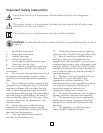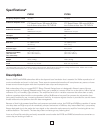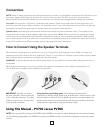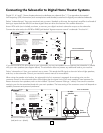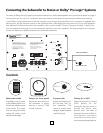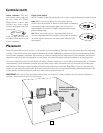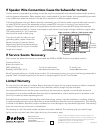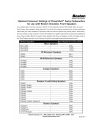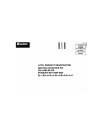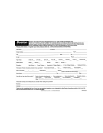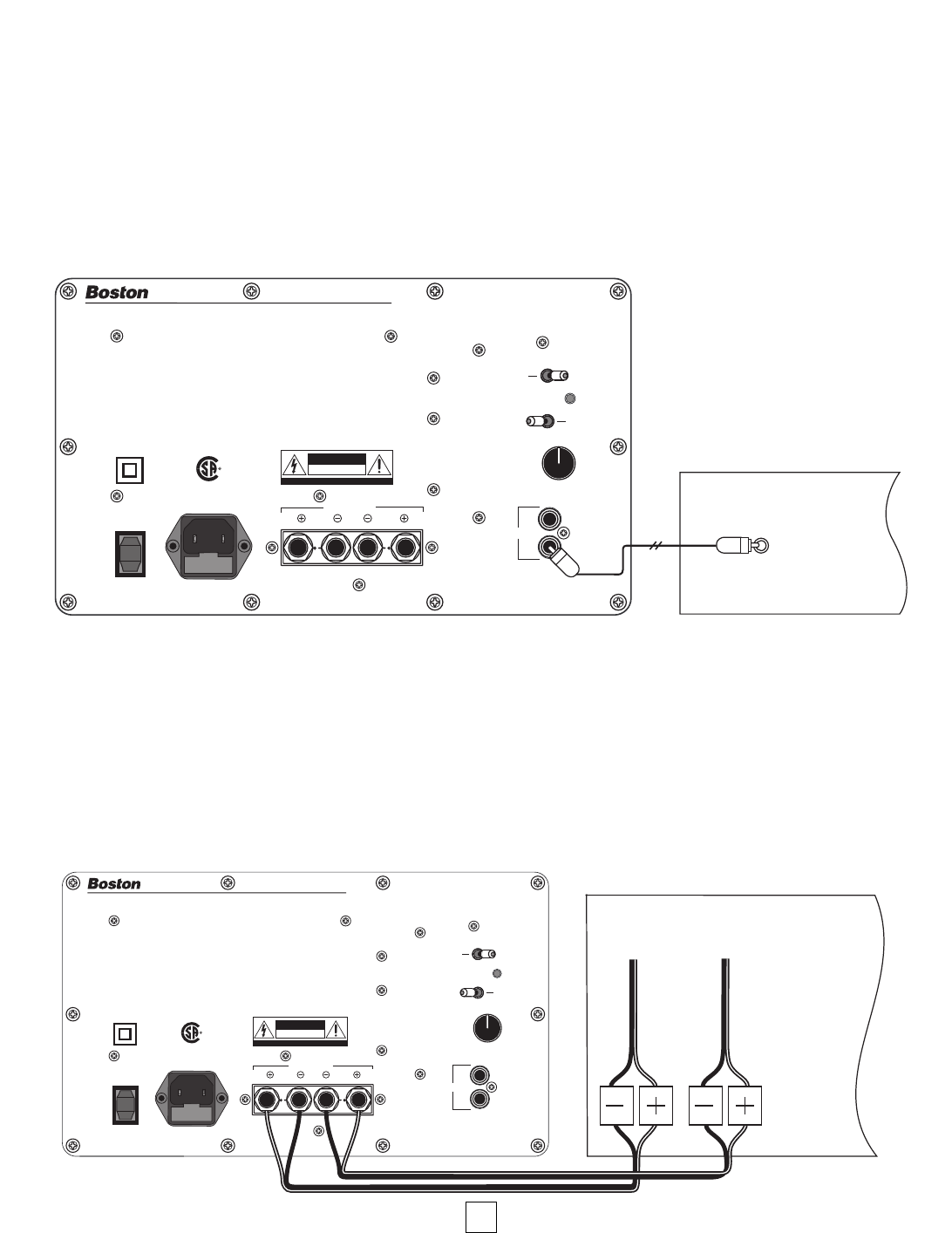
PowerVent Powered Subwoofer
®
PV700
Featuring BassTrac
®
CAUTION: Disconnect supply cord
before replacing fuse. For continued
protection against risk of fire, replace only
with same type fuse.
ATTENTION: Debrancher avant de
remplacer le fusible. Utiliser un fusible de
rechange de même type.
* use crossover control: removes high
frequencies; use with sources lacking suitable
filtering (most products without Dolby Digital
or DTS), or where manual control is desired.
** bypass crossover control: direct to woofer;
use with sources having built-in crossover
controls or bass management (most products
with Dolby Digital or DTS).
T 2.5A L 250V
120V ~ 60Hz 2.5A
on
off
power
C US
CAUTION
RISK OF ELECTRIC SHOCK
DO NO
T OPEN
AVIS: RISQUE DE CHOC ELECTRIQUE-NE PAS OUVRIR
left right
speaker level in
50
80 120
150
crossover (Hz)
power indicator
0 º
180º
polarity
use
crossover
control *
bypass
crossover
control **
line level in
power mode
on
auto
Use only with a 250V fuse
Employer uniquement avec
un fusible de 250V
Use only with a 250V fuse
Employer uniquement avec
un fusible de 250V
5
Connecting the Subwoofer to Digital Home Theater Systems
Digital 5.1, 6.1 and 7.1 home theater electronics dedicate one channel (the “.1”) to reproduce the special
low-frequency (LFE) information (such as explosions and thunder) contained in digitally-encoded soundtracks.
Select ”subwoofer-yes“ from your receiver’s set-up menu. Hooked up this way, the receiver’s amplifier is relieved of
having to reproduce the difficult low bass signals that can drive the receiver into audible distortion.
Use an RCA cable (not included), as shown, to connect your digital receiver’s subwoofer output to the subwoofer.
Connect the other end to the PV700 or PV900 jack labeled “bypass crossover control” underneath “line level in”.
Be sure to connect + to +
(red) and – to – (black
).
If you do not wish to run RCA cables to your subwoofer, you may use speaker wire to connect the subwoofer in parallel
with your main speakers (see diagram below). The subwoofer does not present any additional load to your receiver.
Select “subwoofer-no” from your receiver’s set-up menu. This sends the LFE signal to the main left and right speakers,
and thus, to the subwoofer. Consult your receiver’s owner’s manual for more details.
When using the speaker wire hookup, the subwoofer’s built-in crossover is engaged. As a starting point, set the
crossover control on the subwoofer about 10Hz higher than the lower limit of your main speakers’ bass response (for
Boston Acoustics front speakers, refer to the included “Optimal Crossover Settings...”sheet). Fine-tune the crossover
setting by ear for the smoothest blend with your main speakers. The best setting of the crossover control will depend on
speaker placement and personal preference.
BACK OF RECEIVER
left
right
front
speakers
to main
speakers
PowerVent Powered Subwoofer
®
PV700
Featuring BassTrac
®
CAUTION: Disconnect supply cord
before replacing fuse. For continued
protection against risk of fire, replace only
with same type fuse.
ATTENTION: Debrancher avant de
remplacer le fusible. Utiliser un fusible de
rechange de même type.
* use crossover control: removes high
frequencies; use with sources lacking suitable
filtering (most products without Dolby Digital
or DTS), or where manual control is desired.
** bypass crossover control: direct to woofer;
use with sources having built-in crossover
controls or bass management (most products
with Dolby Digital or DTS).
on
off
power
CAUTION
RISK OF ELECTRIC SHOCK
DO NO
T OPEN
AVIS: RISQUE DE CHOC ELECTRIQUE-NE PAS OUVRIR
left right
speaker level in
50
80 120
150
crossover (Hz)
power indicator
0 º
180º
polarity
use
crossover
control *
bypass
crossover
control **
line level in
power mode
on
auto
Use only with a 250V fuse
Employer uniquement avec
un fusible de 250V
Use only with a 250V fuse
Employer uniquement avec
un fusible de 250V
T 2.5A L 250V
120V ~ 60Hz 2.5A
C US
BACK OF RECEIVER
SUBWOOFER OUT




